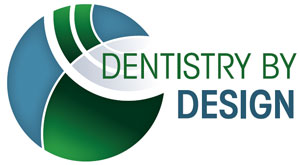
Veneers are thin shells of plastic or porcelain that cover just the visible portion of your teeth. They can fix most cosmetic problems and totally transform a smile in just two appointments.
What are veneers?
Veneers are thin shells of plastic or porcelain that cover just the visible portion of your teeth, typically the front and the chewing surface. They can fix most cosmetic problems and totally transform a smile in just two appointments. Veneers are usually placed on front teeth that can be seen when you smile, and can be used to resurface just one or several teeth. They are similar to artificial fingernails in size and appearance, and serve a similar function as they are bonded to the natural surface to improve appearance. But veneers are very firmly and permanently bonded, and are custom designed for the exact fit and color for your teeth. When you see a complete smile makeover, very often the person has received a new set of porcelain veneers.
Am I a good candidate for veneers?
If you have one or more teeth that are healthy, but need some cosmetic improvement, you should talk to Dentistry by Design about veneers. People get veneers for a variety of reasons, but the result is always beautiful new teeth that make your smile more youthful and attractive.
Why do people choose to get veneers? What can veneers do?
Veneers completely cover the front of your teeth, giving them a brand new, healthy appearance. Since veneers can change the size and shape of a tooth, they can be used for a variety of purposes. They can:
- Close spaces between teeth
- Lengthen and change the shape of teeth
- Whiten stained teeth that resist conventional whitening
- Improve the appearance of chipped, cracked or worn teeth
- Protect teeth from further damage
Are veneers a good option for a total smile makeover?
Yes. In fact, when you see a total smile makeover, very often what you are seeing is a brand new set of beautiful porcelain veneers. They can totally transform a smile in as little as two visits.
What are Composite Veneers?
Dr. Bret Gilsdorf can create composite veneers right on your tooth during the course of one appointment. The material and process for composite veneers are the same the dental bonding procedure. Cosmetic veneers are strong and durable, but not as durable as porcelain veneers. If they fracture, however, they do not have to be replaced as porcelain veneers do. Dr. Gilsdorf can fix a composite veneer fracture by patching it in the same way he created it. Composite veneers do not resist staining as well, and may darken some over time. Since the process is quick and painless, Dr. Gilsdorf can replace any composite veneers that lose their natural color.
What can I expect from the composite veneer procedure?
Dr. Gilsdorf roughens the surface of the teeth so the resin bonding material can attach with a very strong bond. The bonding material is actually soft and flexible, and can be molded like putty or clay. It is a composite resin that will be colored to match the natural shade of your teeth. He will mold and sculpt the resin to create a thin shell over the front of the tooth. A high intensity light will be aimed at the sculpted bonding material, quickly turning it hard and durable. Dr. Gilsdorf will repeat this procedure, applying multiple thin layers, so the entire procedure could take more than an hour. Once hardened, the composite veneers are very strong, and will look and feel very much like your natural teeth. Finally, all new surfaces are smoothed and carefully polished.
What are Porcelain Veneers?
Natural teeth have a translucent appearance that can be most closely duplicated with beautiful porcelain veneers. Porcelain delivers the highest quality, longest lasting and most lifelike results for veneers, and that is why it is typically used in “smile makeovers”, where an entire smile is to be transformed. The porcelain is extremely hard and durable as well as very resistant to staining. It will show little signs of the darkening with age that is more common with composite veneers.
There are a few potential disadvantages to porcelain veneers to discuss with Dentistry by Design. They take no less than two appointments because the teeth must be prepared by removing some of the existing tooth structure to make room for the veneers. Also, while the finished veneers form a tight, strong and durable bond with your tooth, the porcelain can fracture under extreme stress. If fractured, by teeth grinding or improper use, a porcelain veneer will probably need to be replaced.
What can I expect from the porcelain veneer procedure?
Porcelain veneers take at least two appointments because Dentistry by Design must first shape your teeth and prepare them for the new veneers. Typically, this means removing some tooth tissue to make room for the new veneers, and roughing the tooth surface to ensure a tight, strong bond. Next Dr. Bret Gilsdorf will make a wax impression of your teeth to be used as a model for the porcelain to be shaped to your precise specifications. At the end of this first appointment, Dr. Gilsdorf can insert temporary plastic veneers to protect your teeth while the dental lab is creating your custom fitted veneers. During the second appointment, your doctor will remove the temporaries, and use an adhesive to bond the porcelain veneers to your teeth. A harmless, high intensity light will harden the adhesive and create a strong durable bond between the veneers and the teeth.
What type of veneer is right for me?
For lower cost and fewer appointments without much alteration to your natural tooth structure, composite veneers make a good choice. The strength, durability and life-like appearance of the porcelain veneers make them very popular and a stellar choice for a full smile transformation.
Once I have veneers, what can I expect?
Once the veneer is in place, it will function just like a regular tooth. A veneer is considered a permanent tooth restoration, but that doesn’t mean it is expected to last forever. Proper care and habits and regular dental examinations and cleanings will allow you to keep your veneers looking beautiful for ten years or more.

